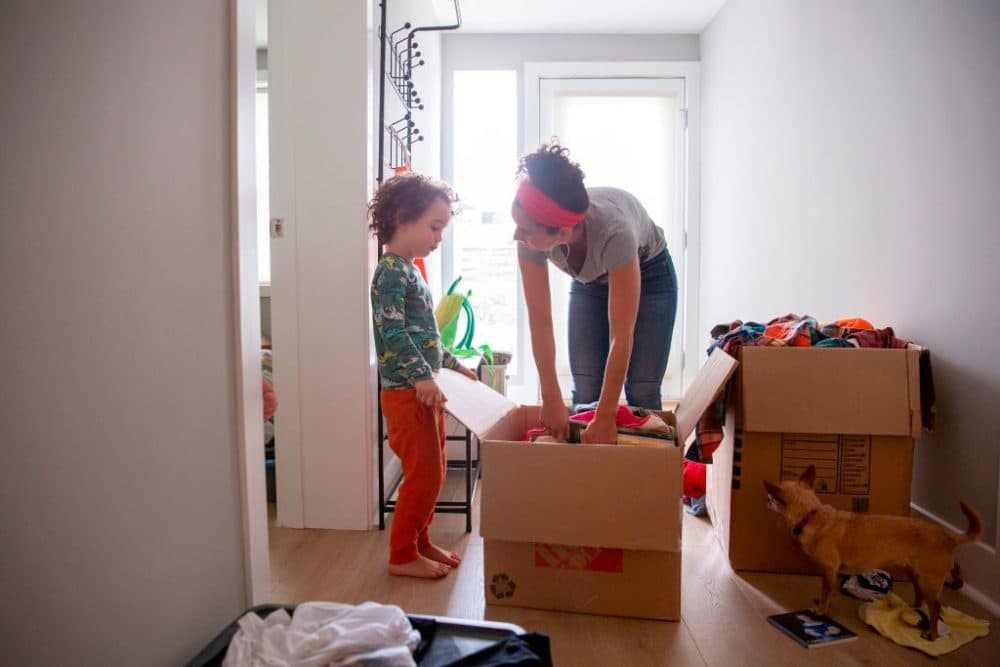Advertisement
Commentary
The Quiet Revolution Underway To Pay Parents

My mother was a saint. My late father used to voice that mantra of his generation; it was uttered by men from Richard Nixon to Dr. Zoidberg (watch “Futurama” if the reference eludes). Perhaps it took an Irish Catholic and a Mormon, whose communities’ matriarchs historically superintended plus-sized clans, to suggest this saintly work deserves compensation.
Whether Joe Biden and Mitt Romney meant to redefine paid work, the Utah senator’s proposed child-based family payments whisper that revolution in their text, as does a similar provision in Biden’s COVID-19 package. (Not to be sexist, they’d reward male parenting, too. But fathers average significantly less time with the kids.)
Biden’s just-unveiled infrastructure plan funds professional child care, along with road and bridge improvements. But his and Romney’s bigger, norm-upending idea to pay parents is overdue.
A Vox essayist recalled her widowed mom’s ordeal in raising her and her emotionally troubled brother until a stroke felled her. As a “nonworker,” their mother was ineligible for federal assistance. Biden’s child allowance, her daughter wrote, “would have been enough to keep the fridge stocked. It would have been enough to try a different psychiatrist for my brother. It would have been enough that she didn’t have to spend time crying over the electric bill.”
Parenting grew hellishly harder as COVID-19 shrouded America last year, forcing more than 10% of mothers with young children to drop out of the paid workforce to care for their kids.
An existing tax credit gives qualifying families up to $2,000 per eligible child, a sum that still leaves 14% of American children in poverty. The COVID rescue plan, passed last month, will, for one year, raise the credit to $3,600 for every child under 6 years old and to $3,000 for those between 6 and 17. The expanded credit diminishes for individuals with $75,000 in adjusted gross income, single heads of household making $112,500, and couples filing jointly who make $150,000.
more than 10% of mothers with young children [dropped out] of the paid workforce to care for their kids.
Romney (and every other Congressional Republican) voted against the COVID plan as a budget-buster. Unlike the Democrats, he’d redirect spending from existing poverty programs for his allowances. His proposal matches Democrats’ $3,000 check for older children but offers more per child under 6 — $4,200. And he’d make the benefits permanent, something Biden and Democratic leaders endorse.
His income thresholds seem loose; single parents earning up to $200,000 (two and a half times the median family income) and joint tax filers up to $400,000 would get the benefit. But quibbles shouldn’t obscure the social upheaval afoot.
"Romney seems to be coming in and saying the [GOP’s] focus on work, on paid formal labor, as the only kind of valuable work, and its dismissal of parenting as a valuable form of work, is wrong,” progressive Ezra Klein noted on his podcast. "What is the value of saying it is work to go work at a daycare center taking care of somebody else’s child for $9 an hour, but it is not work to be at home taking care of your child or your children?”
Advertisement
Good question. Klein’s hosanna coaxed an amen from his conservative interlocutor, National Review’s Ramesh Ponnuru: “You don’t want to gloss over the enormous amount of work that gets done inside a household in raising kids especially. And yeah, I do think that is something that has gotten devalued for various reasons.”
Might the family focus of child allowances ally social conservatives with progressives?
Whence this pan-ideological applause? Beside Klein’s salient daycare analogy, there’s the fact that Biden’s expanded child allowance will halve child poverty. But why stop there? Cash for parenthood or for paid child care (should parents want or need to work) should be included in the cash grants to poor and working poor Americans, and if feasible (and they seem to be), should replace our existing anti-poverty regime.
Brazil’s Bolsa Familia grants erected guardrails protecting the taxpayers’ investment — notably for this discussion, the money went to mothers rather than fathers (sorry, boys) — with the result that Brazilian families have spent responsibly, while the country’s poverty rate has plummeted two-thirds, for a farthing in overhead. Meanwhile, anxiety that handouts would bleed recipients’ work ethic was rebutted by experience with cash aid in Stockton, California recently, in U.S. and Canadian experiments in the 1970s, and in Alaska, whose residents receive regular oil-revenue checks without stringing up hammocks during business hours.
Excitable types gush about child grants ballooning into something even bigger, a universal basic income — cash for everyone, even the non-poor. But when no less progressive an expert than Paul Krugman calls that unaffordable, cooler heads listen. Floating utopian fantasies only gives ammo to counter-revolutionaries like the Republican knee-jerks who trashed Romney’s child “welfare assistance.”
Yet Biden’s COVID plan wows even GOP voters. Might the family focus of child allowances ally social conservatives with progressives?
